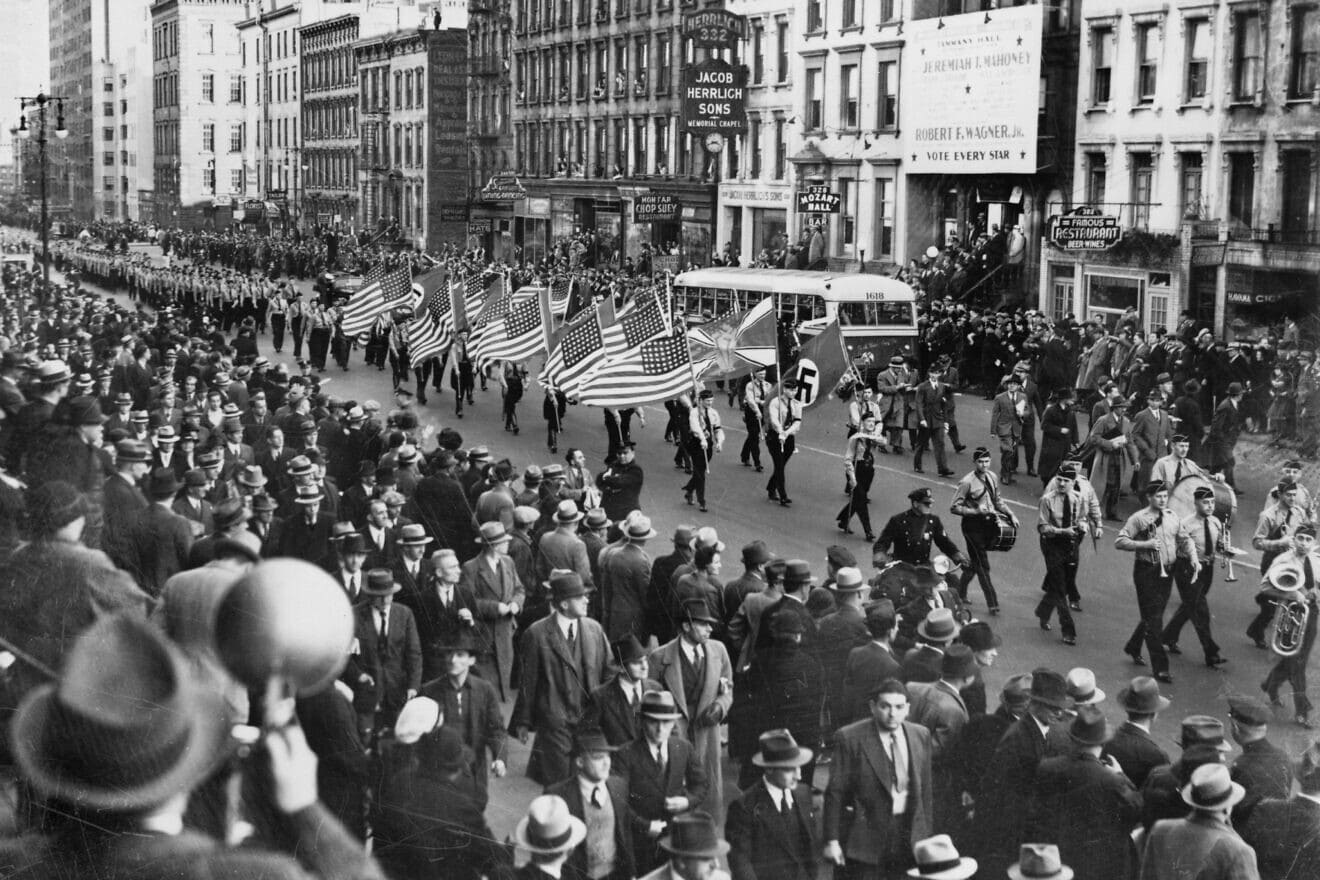Like many Jews of my generation, born during a period when antisemitism was largely depicted as a historical phenomenon and any manifestations were seen as an unfortunate aberration, I would occasionally wonder how the non-Jews in my midst would have behaved during the Holocaust. Would they have stood up to the Nazis, acquiesced to them or even supported them? Would they have expressed disgust at Nazi propaganda or dutifully nodded in agreement? Would they have protected me and my family from deportation, or would they have betrayed us?
Those were, I mused, speculative thought experiments that, thankfully, I would never have to test in the real world. But in 2024, one year after the bestial pogrom wreaked by Hamas terrorists in southern Israel, those same questions belong firmly in the real world. And my suspicion is that many, indeed most, non-Jews would fail these tests of moral and physical courage.
Earlier this month, Melanie Notkin, an author and communications consultant, had the foresight to record a conversation she held with Matt Baldacci, the publisher of Shelf Awareness, a trade title for the bookstore and publishing industry that reaches more than 600,000 readers weekly. Notkin had been helping to promote Israel Alone, the latest book by the French philosopher Bernard-Henri Lévy, which I recently reviewed for this column, and duly purchased an ad in Baldacci’s newsletter for $2,300. But then Baldacci sent her an email informing her that he was canceling the ad, so Notkin scheduled a phone call with him to find out more.
Their conversation was endlessly fascinating and incredibly disturbing. As he told Notkin that the ad had been pulled because the book contains the word “Israel” in the title—potentially triggering bookstore staff or customers with what he would call “pro-Palestinian” but what we properly call pro-Hamas sympathies—Baldacci traversed the spectrum of vocal tones with aplomb, sounding by turns friendly, then unctuous, then impatient, then irritated. At one point, he even indulged in a bit of “mansplaining,” telling Notkin “that’s not actually true or relevant” when she noted that the CEO of his company is Jewish. “Listen, Melanie, Melanie, I hear you,” he interjected, sounding determined to end the conversation as quickly as possible. “I respect everything you’re saying. And as you say, I think that’s all there is to say.”
I don’t know Notkin, but I admired her dignity in carefully listening to Baldacci and eloquently pushing back against his cloying, disingenuous arguments. I don’t know Baldacci either, at least not personally, but I know his type very well.
It’s probably true that most of those who collaborated with the Nazis in Germany and occupied Europe did not do so primarily for ideological reasons but because resistance would have made their daily lives much tougher. I was always taught not to judge these people for not doing the right thing because they feared imprisonment or death, after all. And in the postwar period, there was a discreet acknowledgement among the occupied populations that this had been the case and that history had been kinder to them than was perhaps warranted; in the Netherlands, for example, people would joke that “most Dutch were in the resistance—they just joined after the war.” But that explanation doesn’t serve for someone like Baldacci, who exhibits the telltale traits of a collaborator without the specter of a totalitarian state operating concentration camps hanging over him.
Baldacci is a coward: Someone who, when faced with injustice or rank hypocrisy, rationalizes it and plays its worst aspects down. Someone who doesn’t like to rock the boat. In other words, he is the perfect fit for a collaborator. And so we are forced to ask: If America was suddenly in the grip of totalitarianism, if we had a government that was rounding up Jews in a bid to stop the Jewish conspiracy, if we had a government that criminalized the word “Israel”—a word that is always in the consciousness of Jews and their aspirations and prayers—what would Baldacci do? I know the answer, and I expect readers do, too.
It is the Matt Baldaccis of this world—women and men who are followers and not leaders, who consent to antisemitic agitation without explicitly endorsing it, who stay silent when they need to speak up—who have enabled the current wave of eliminationist antisemitism gripping our country and much of the Western world. Their simpering silence and pathetic fear of angering the mob are precisely what empowers the thugs who shoot at Jews going to synagogue in Chicago or at a Jewish school in Toronto, who gather outside a London conference where the Arab head of the anti-Zionist Communist Party of Israel is speaking to verbally abuse the peace activist Jews in attendance, who push petitions seeking to banish Jews from the worlds of literature, art and music—fields of endeavor that would be indelibly poorer without our contribution!
It is the Matt Baldaccis who have forced Jews, myself among them, to ask whether we grew up in some kind of an illusion, given the routine normalcy with which we historically interacted with non-Jewish friends and colleagues. Because if such people can’t stand up for a Jewish writer like Lévy in a democracy where free speech is part of our national ethos, how should we expect them to behave if the stakes and the costs are much graver? If their fear of the disapproval of the pro-Hamas media and street chorus is so great now, how much greater would it be if this chorus exercised direct political control of our republic?
I hope we never have to find out.


























